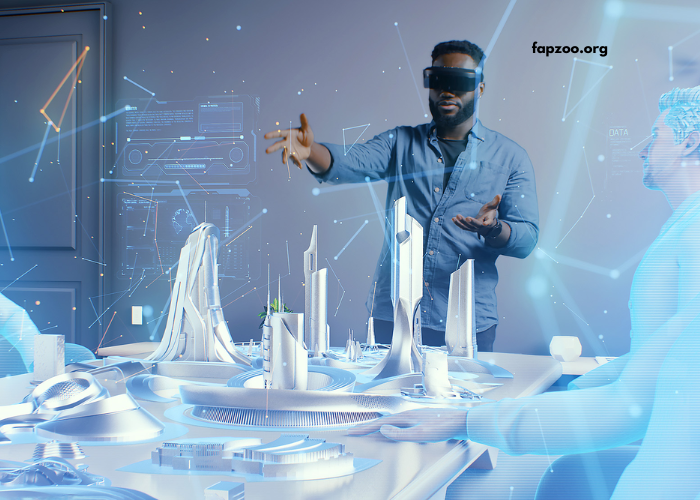Technology is progressing at an unprecedented pace, constantly evolving and transforming the way we live, work, and interact with the world. As we look ahead to 2025 and beyond, the future of technology promises to bring even more groundbreaking innovations that will reshape our daily lives and the global economy. From advancements in artificial intelligence (AI) and machine learning (ML) to breakthroughs in quantum computing, biotechnology, and renewable energy, these innovations are not only pushing the boundaries of possibility but also opening up new opportunities for growth and development.
The Role of Artificial Intelligence and Machine Learning
AI and Automation in Everyday Life
Artificial Intelligence (AI) and Machine Learning (ML) are expected to be at the forefront of technological innovation in the coming years. By 2025, AI and ML will likely be integrated into almost every aspect of our daily lives, revolutionizing industries such as healthcare, transportation, education, and finance.
In healthcare, AI-driven algorithms will improve diagnostic accuracy, helping doctors detect diseases earlier and more accurately. AI-powered virtual assistants will play a significant role in patient care, providing personalized health advice, reminders for medication, and offering real-time assistance for health concerns.
In the realm of transportation, autonomous vehicles are expected to become a common sight on roads, reducing accidents caused by human error, increasing fuel efficiency, and transforming how goods and people are transported. Additionally, AI will enhance public transportation systems, making them more efficient, safer, and more accessible.
AI in Business and Automation
In the business world, AI and ML will automate many routine tasks, allowing employees to focus on more complex and creative work. Automation will drive efficiency and productivity, reducing operational costs and enabling businesses to deliver better services to customers. AI-driven chatbots and virtual assistants will further streamline customer service, providing instant responses to queries and improving the overall customer experience.
Machine learning algorithms will also be used to predict market trends, customer behavior, and supply chain demands. By analyzing vast amounts of data, businesses will be able to make more informed decisions, tailor their marketing efforts, and create products that are better aligned with customer preferences.
The Rise of Quantum Computing
Revolutionizing Computational Power
Quantum computing is set to revolutionize the way we process information. Unlike traditional computers, which use binary bits to represent data, quantum computers utilize quantum bits (qubits) that can exist in multiple states simultaneously, allowing them to perform complex calculations at an exponentially faster rate.
By 2025, quantum computing could solve problems that are currently intractable for classical computers, such as simulating molecular interactions for drug discovery or optimizing supply chains for large corporations. The potential applications of quantum computing extend across industries, from cryptography and cybersecurity to climate modeling and material science.
Implications for Security and Privacy
Quantum computing also brings significant challenges to data security. Traditional encryption methods could become obsolete in the face of powerful quantum algorithms capable of breaking current cryptographic protocols. As a result, there is a growing need for new quantum-resistant encryption techniques to safeguard sensitive data in the future. This has led to the development of quantum-safe cryptography, which will play a crucial role in securing communication networks and financial transactions as quantum computers become more accessible.
Biotechnology and Genetic Engineering
Advancements in Medicine and Healthcare
Biotechnology is poised to revolutionize healthcare by enabling more personalized treatments and cures for diseases that have long been considered incurable. With the rapid advancement of gene editing technologies such as CRISPR, scientists are now able to modify genes with incredible precision, offering the potential to eliminate genetic disorders and prevent hereditary diseases.
In the coming years, we can expect to see breakthroughs in personalized medicine, where treatments and therapies are tailored to an individual’s genetic makeup. This will improve the effectiveness of treatments, reduce side effects, and ultimately result in better health outcomes. Additionally, the development of lab-grown organs and tissues could alleviate the shortage of organ donors, saving countless lives in the process.
Biotech’s Role in Sustainability
Biotechnology will also play a significant role in addressing some of the world’s most pressing environmental challenges. From developing sustainable biofuels to creating plant-based alternatives to animal products, biotech innovations will help reduce our reliance on fossil fuels and minimize the environmental impact of industrial processes. Moreover, advances in agricultural biotechnology will enable farmers to grow crops that are more resistant to pests, diseases, and climate change, contributing to food security in a rapidly changing world.
Renewable Energy Technologies
Advancing Solar and Wind Energy
The future of energy lies in renewable sources, and by 2025, solar and wind power will continue to dominate the energy landscape. As technology improves and costs continue to fall, solar and wind energy will become even more accessible, providing clean and affordable power to homes and businesses around the world.
Next-generation solar panels will be more efficient and versatile, with the ability to capture energy from the sun even in low-light conditions. Similarly, wind turbines will become more efficient, capable of generating electricity at lower wind speeds and in a wider range of environments.
Energy Storage and Smart Grids
One of the main challenges facing renewable energy is energy storage, as solar and wind power are intermittent sources of energy. However, advancements in battery technology and energy storage solutions are expected to address this challenge in the coming years. Solid-state batteries, for example, are expected to offer higher energy densities, longer lifespans, and greater safety compared to current lithium-ion batteries.
Smart grids will also play a key role in the future of energy, enabling better management of electricity distribution. These grids will use AI and real-time data to optimize the flow of energy, balance supply and demand, and ensure that renewable energy is stored and distributed efficiently.
The Evolution of the Internet of Things (IoT)
Smart Homes and Connected Devices
The Internet of Things (IoT) is rapidly expanding, connecting everyday objects and devices to the internet and enabling them to communicate with one another. By 2025, smart homes will become more advanced, with interconnected devices that can learn from users’ behaviors and adjust settings accordingly to improve comfort, security, and energy efficiency.
From smart refrigerators that can order groceries to security systems that recognize faces and alert homeowners to potential threats, the IoT will create a seamless, connected living environment. Additionally, wearable IoT devices will continue to monitor our health, providing real-time insights into vital signs, activity levels, and sleep patterns.
IoT in Industry and Urban Planning
In industry, IoT will streamline operations, allowing businesses to monitor equipment in real time, predict maintenance needs, and optimize production schedules. Smart factories will use IoT sensors to track everything from raw materials to finished products, reducing waste and improving overall efficiency.
In urban planning, IoT technologies will help create smart cities, where infrastructure such as traffic lights, streetlights, and waste management systems are connected and optimized. By analyzing data from IoT sensors, cities can reduce congestion, lower energy consumption, and improve the quality of life for their residents.
The Metaverse and Virtual Reality (VR)
The Future of Digital Interaction
The metaverse, a virtual reality space where users can interact with a computer-generated environment and other users in real time, is quickly becoming a major area of interest. By 2025, the metaverse could revolutionize how we socialize, work, and conduct business. Virtual reality (VR) and augmented reality (AR) will merge to create immersive, interactive environments that transcend traditional online experiences.
In the workplace, the metaverse will enable remote collaboration in fully immersive virtual spaces. Instead of using video calls or text chats, employees will be able to meet and interact in 3D environments, making remote work feel more like being physically present in an office. For education, VR will offer students the chance to experience hands-on learning in virtual classrooms, from exploring ancient civilizations to conducting science experiments.
The Impact on Entertainment and Gaming
The metaverse will also reshape entertainment and gaming. In the future, people may spend hours immersed in virtual worlds, attending concerts, watching movies, and playing games in ways that blur the lines between reality and fiction. For the gaming industry, this shift will open up new opportunities for creativity and innovation, allowing developers to create more realistic, interactive, and engaging experiences for players.
Conclusion: Embracing the Future of Technology
The future of technology is both exciting and transformative. Innovations in AI, quantum computing, biotechnology, renewable energy, IoT, and the metaverse will reshape industries, create new opportunities, and improve our quality of life. However, these advancements also raise important questions about ethics, privacy, and the role of technology in society.
As we move into 2025 and beyond, it is essential that we continue to innovate responsibly and ensure that the benefits of technology are accessible to everyone. With careful planning and collaboration between governments, businesses, and individuals, the future of technology can be a powerful force for good, shaping a better and more sustainable world for generations to come.



